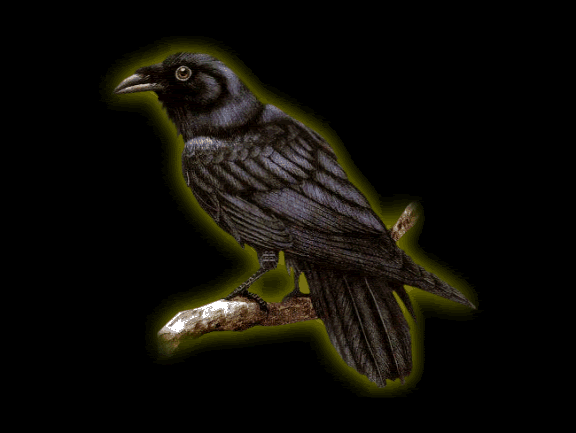Skip to comments.
The DNA of Detection (Poe7 & Mysteries)
BBC ^
Posted on 01/19/2009 11:43:32 AM PST by nickcarraway
As the bicentenary of Edgar Allan Poe is celebrated, fans should be thanking him for his invention of the modern detective genre, writes crime fiction author Andrew Taylor.
Bestseller lists and library lending figures tell the same story - crime and detective stories are more popular than ever, and their success has spilled over into film and TV drama.
It's remarkable how many of the genre's classic elements can be traced back to the feverishly fertile imagination of one man, Edgar Allan Poe. Once you start looking, the clues are everywhere.
Born 200 years ago, on 19 January 1809, Poe was a prolific writer of poetry, fiction and essays. But his influential contribution to crime and detective fiction mainly derives from a handful of short stories.
The most important are the three featuring his French investigator, C Auguste Dupin.
The first, The Murders in the Rue Morgue, was published in 1841, predating the founding of a detective office even at Scotland Yard. Its format brought about a revolution in fiction.
Dupin is well-educated and eccentric. He relishes the intellectual challenge of pitting his analytical abilities against those of the conceited but frequently baffled prefect of police in Paris - a man who calls "every thing 'odd' that is beyond his comprehension".
Lines of descent
Dupin is extraordinarily skilled in inferring the thoughts of others from the smallest external traces. He also has a loyal friend who narrates the stories and signals the proper responses to readers ("Dupin... I do not hesitate to say that I am amazed").
Sounds familiar? Arthur Conan Doyle admitted that he used Poe's formula as a blueprint for Sherlock Holmes and Dr Watson. From Holmes, there are clear lines of descent to Dorothy L Sayers'
(Excerpt) Read more at news.bbc.co.uk ...
TOPICS: Books/Literature; History; Miscellaneous
KEYWORDS: eapoe; edgarallanpoe; edgarallenpoe; godsgravesglyphs; literature; mystery; poe
To: nickcarraway
To: nickcarraway
Nevermore
3
posted on
01/19/2009 1:11:09 PM PST
by
JoeProBono
("Creative License. Take as much as you want.")
-
The Poe Toaster E.A. Poe Society of BaltimoreSince 1949, on the night of the anniversary of Poe's birth, a mysterious stranger has entered this cemetery and left as tribute a partial bottle of cognac and three roses on Poe's grave. The identity of the stranger, referred to affectionately as the Poe Toaster, is unknown. The significance of cognac is uncertain as it does not feature in Poe's works as would, for example, amontillado. The presumption for the three roses is that it represents the three persons whose remains are beneath the monument: Poe, his mother-in-law (Maria Clemm) and his...
-
Only four mourners attended his funeral in Baltimore, along with an Episcopal minister, the gravedigger and the sexton. The minister, a distant relation of the deceased, decided not to deliver a sermon to such a small gathering. The grave itself sat unmarked for 25 years. As if fate itself conspired to accentuate the void in the death of Edgar Allan Poe, 15 years after the burial, a train derailed into a quarry and destroyed the stone that was finally being constructed for the grave. The tablet read Hic Tandem Felicis Conduntur, "Here At Last He Is Happy". Edgar Poe (the...
-
In his short story The Black Cat, the Gothic writer Edgar Allan Poe writes about a killer who conceals his victim behind a wall and is found out when the cat he accidentally hid with the body starts howling. Assistant State Attorney Brian Cavanagh referenced the gruesome tale as he laid out the evidence against Charles Gregory Moninger, accused of killing his housemate four years ago and stuffing her corpse in a closet.
-
BY JOHN J. MILLER On a snowy night toward the end of his life, Edgar Allan Poe delivered a lecture on the origins of the universe. It was an unusual topic -- Poe was always more interested in death than birth -- and the reviews were mixed. Frustrated by the response, Poe announced that 2,000 years would pass before his work was properly admired. His remarks were soon published as "Eureka: A Prose Poem." The book sold a few hundred copies and then slipped into obscurity, forgotten except for the fact that its author went on to become a giant...
-
As the bicentenary of Edgar Allan Poe is celebrated, fans should be thanking him for his invention of the modern detective genre, writes crime fiction author Andrew Taylor. Bestseller lists and library lending figures tell the same story - crime and detective stories are more popular than ever, and their success has spilled over into film and TV drama. It's remarkable how many of the genre's classic elements can be traced back to the feverishly fertile imagination of one man, Edgar Allan Poe. Once you start looking, the clues are everywhere. Born 200 years ago, on 19 January 1809, Poe...
-
Edgar Allan Poe was plagued by addictions, and his life was cut too short. The mysteries of his life were as complex as those conveyed in his stories and poetry. Today is the 200th anniversary of his birthday.
4
posted on
01/19/2009 2:36:42 PM PST
by
SunkenCiv
(https://secure.freerepublic.com/donate/____________________ Profile updated Monday, January 12, 2009)
5
posted on
01/19/2009 2:38:48 PM PST
by
SunkenCiv
(https://secure.freerepublic.com/donate/____________________ Profile updated Monday, January 12, 2009)
Disclaimer:
Opinions posted on Free Republic are those of the individual
posters and do not necessarily represent the opinion of Free Republic or its
management. All materials posted herein are protected by copyright law and the
exemption for fair use of copyrighted works.
FreeRepublic.com is powered by software copyright 2000-2008 John Robinson

